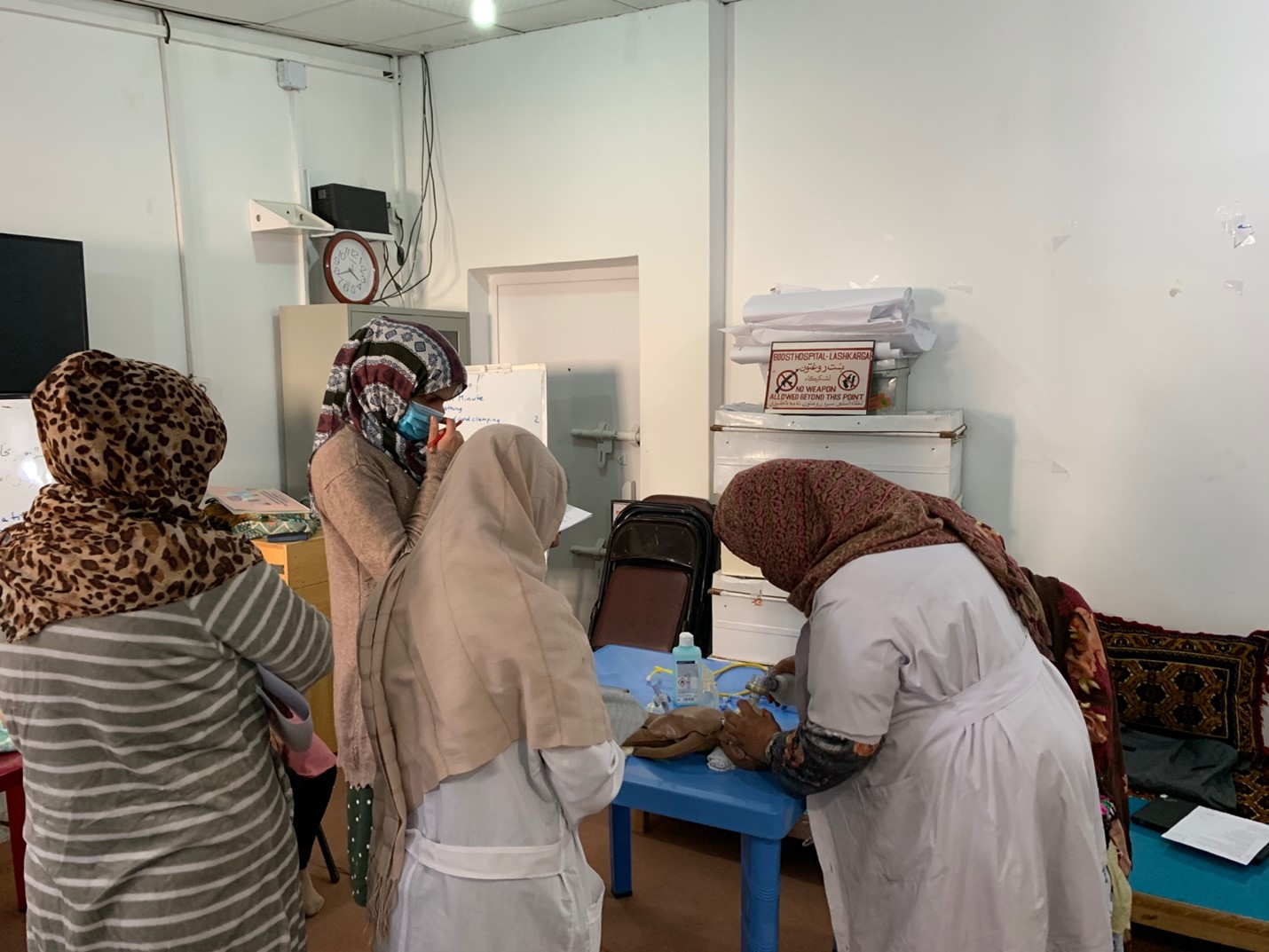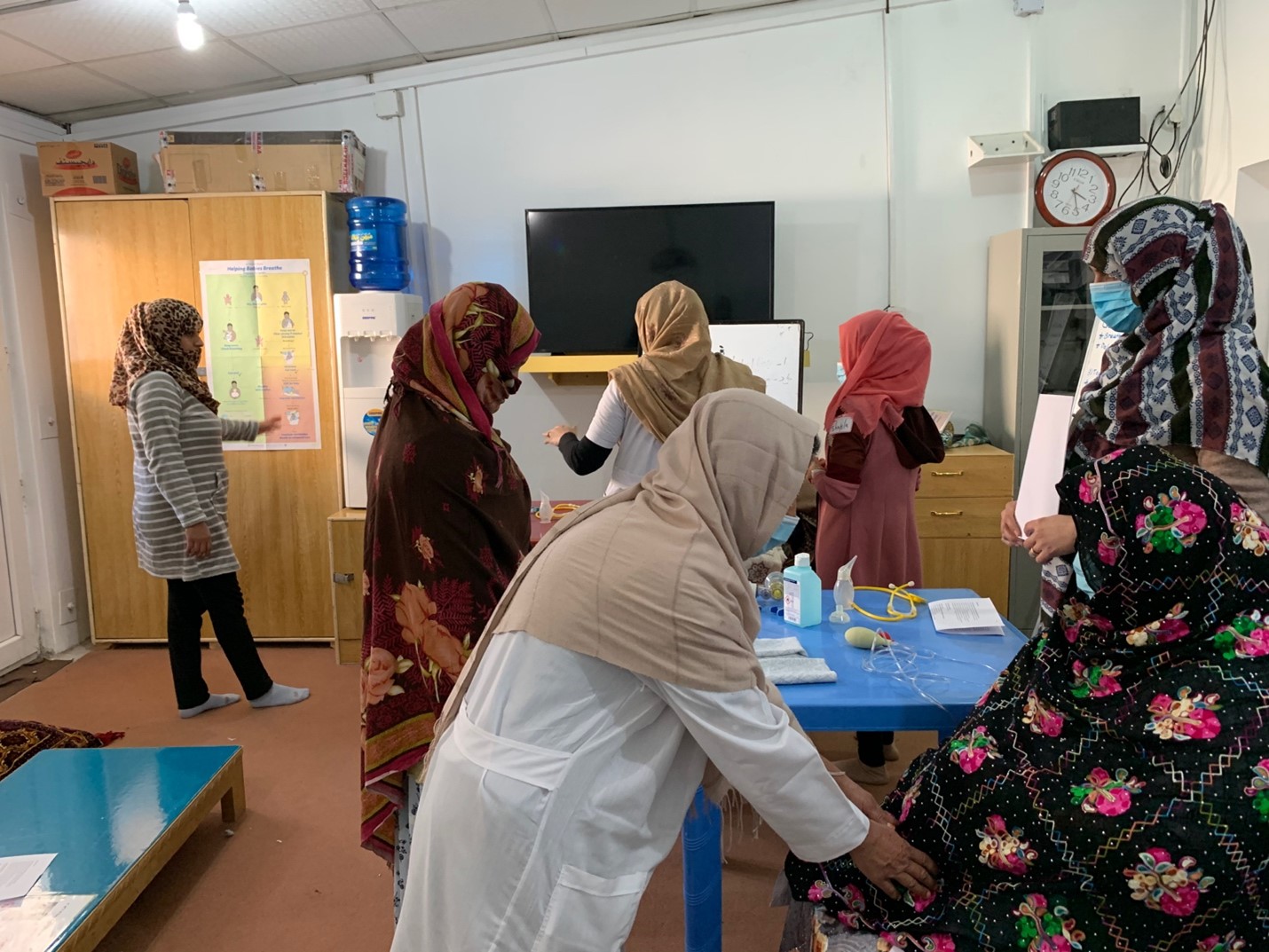By Dr. Lia Harris, Pediatrician, HBB Master Trainer
March 2021
I have taught Helping Babies Breathe (HBB) in several resource-limited settings around the world, but never before have I felt it to be such a tool for empowerment of women than in Afghanistan.
Working with Doctors Without Borders (MSF) from September 2020 to March 2021, I was delighted to learn part of my job description was teaching HBB. When I arrived, however, I discovered HBB was being taught, but as a hybrid course with the WHO Emergency Triage Assessment and Treatment (ETAT) program, along with CPR. The (all male) neonatal intensive care unit (NICU) doctors and nurses were teaching it to the midwives. The culture here is such that men and women are forbidden from mixing in work situations and must never touch. It is therefore very challenging for men to teach women, or vice versa, at a hands-on training program. As a result, HBB was being taught as a didactic course, with a slide presentation, and not at all hands-on. Also, the midwives (correctly) complained that the ETAT content was more complicated than they needed. Finally, presumably because men are never permitted in the delivery room, the male doctors and nurses were not highlighting the "Golden Minute", the most essential time for HBB and the survival of newborn babies.
With the agreement of the NICU staff, I was welcomed to teach the HBB program within the Maternity Department, as an all-women training. Initially, I taught 3 female obstetricians, and 3 midwives in the train the trainer model to be trainers of HBB. Then, over the course of several weeks, I watched them teach it to their colleagues. So far, half the department of nearly 100 doctors, midwives, nurses, and midwife assistants have been taught, and by June they all will have completed the course.
We also had the second edition of the learning material translated to Pashto, so they could complete the written exam.
Highlights for me, included being able to hand-over-hand show the trainees how to hold the bag and mask to get a good seal. I also enjoyed watching my trainers blossom as teachers, taking to heart that the best way to learn is having your students "say and do", rather than listen and watch. The participants all understood the importance of the interventions in the Golden Minute, instead of rushing to CPR and calling the NICU. Amazingly, the number of asphyxiated newborns transferred from Maternity to NICU decreased in the time since the program began.
Both the trainers and trainees were appreciative of the program now being self-contained within the Maternity Department. One of the midwife trainees told me, "this course will change the life of the midwives".


Last Updated
11/15/2021
Source
American Academy of Pediatrics